
Join the oldest undergraduate conservation programme in the UK. Our degree equips future ecology and conservation professionals.
Natural science areas of focus include ecology, wildlife survey methods, rewilding, wildlife management, conservation biology, biogeography, and conservation genetics, and include an emphasis on field-trips with some lab-based training too.
Explore the human dimensions of conservation including climate change, environmental sustainability, species reintroduction, working with rural communities, human-wildlife conflict and conservation policy, so upon graduation, you can make a real difference in tomorrow’s world.
Graduate with skills in wildlife and habitat surveying, data analysis, survey design, Geographical Information Systems (GIS), and ecological project management - having planned your own dissertation research project in the final year. Become part of the Durrell Institute of Conservation and Ecology (DICE), an award-winning research centre. You’ll be taught by award-winning DICE staff, giving you the knowledge, skills and global networks to address modern environmental challenges.
Our extensive range of UK and overseas field trips take advantage of the UK’s rich landscapes, our beautiful green campus, and you could even venture to the forests and beaches of Costa Rica on our tropical field course. Kent is now an epicentre of rewilding efforts in the UK, and we take advantage of our proximity to reintroduction projects including the Bison in Blean woods, just a stones throw from the University of Kent.
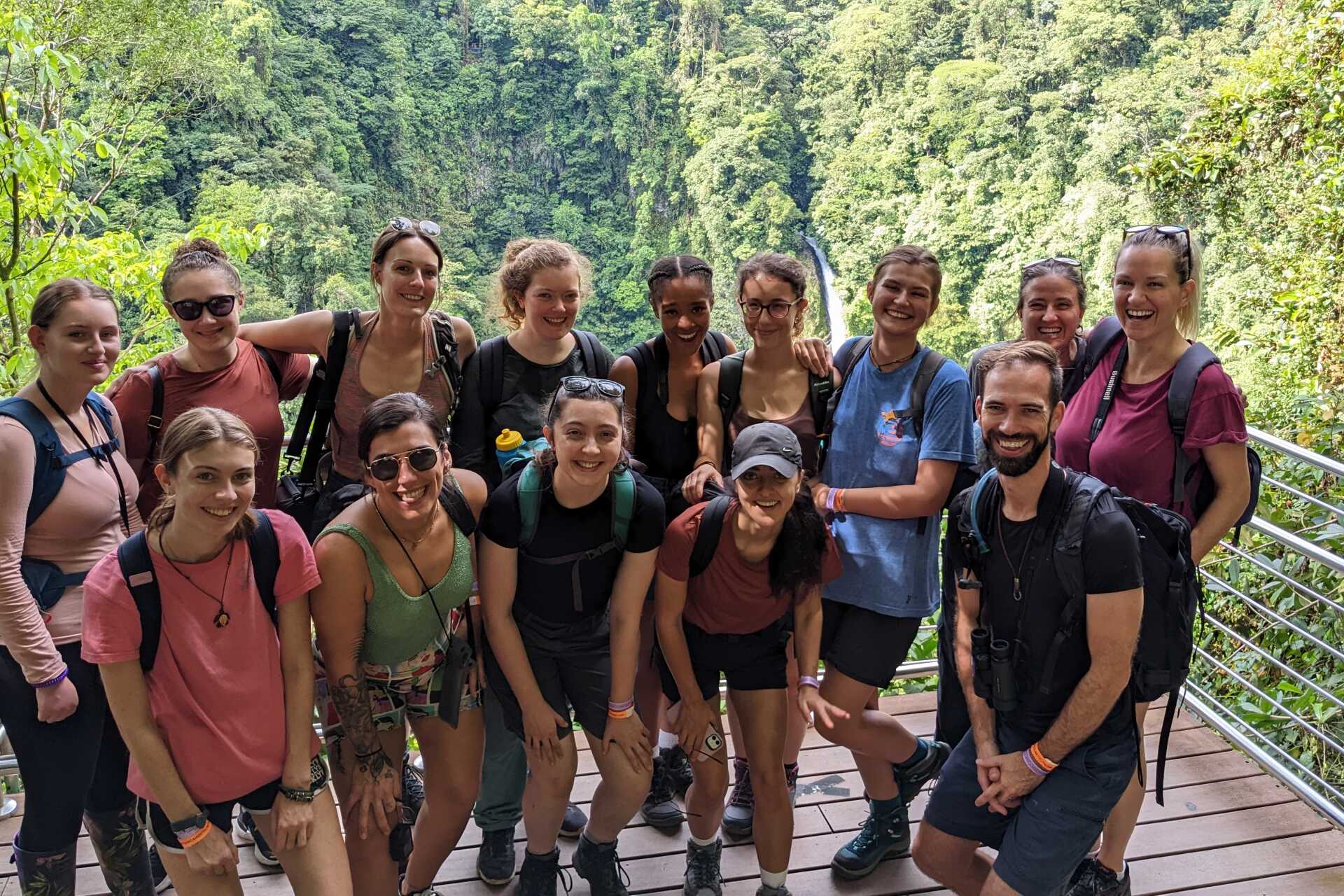
Experience a thought-provoking mix of teaching methods, including field visits, lectures, small seminar groups and laboratory sessions.
Undergraduate Jess Callaghan writes about her experience on the Tropical Field Course in the Costa Rica jungle.
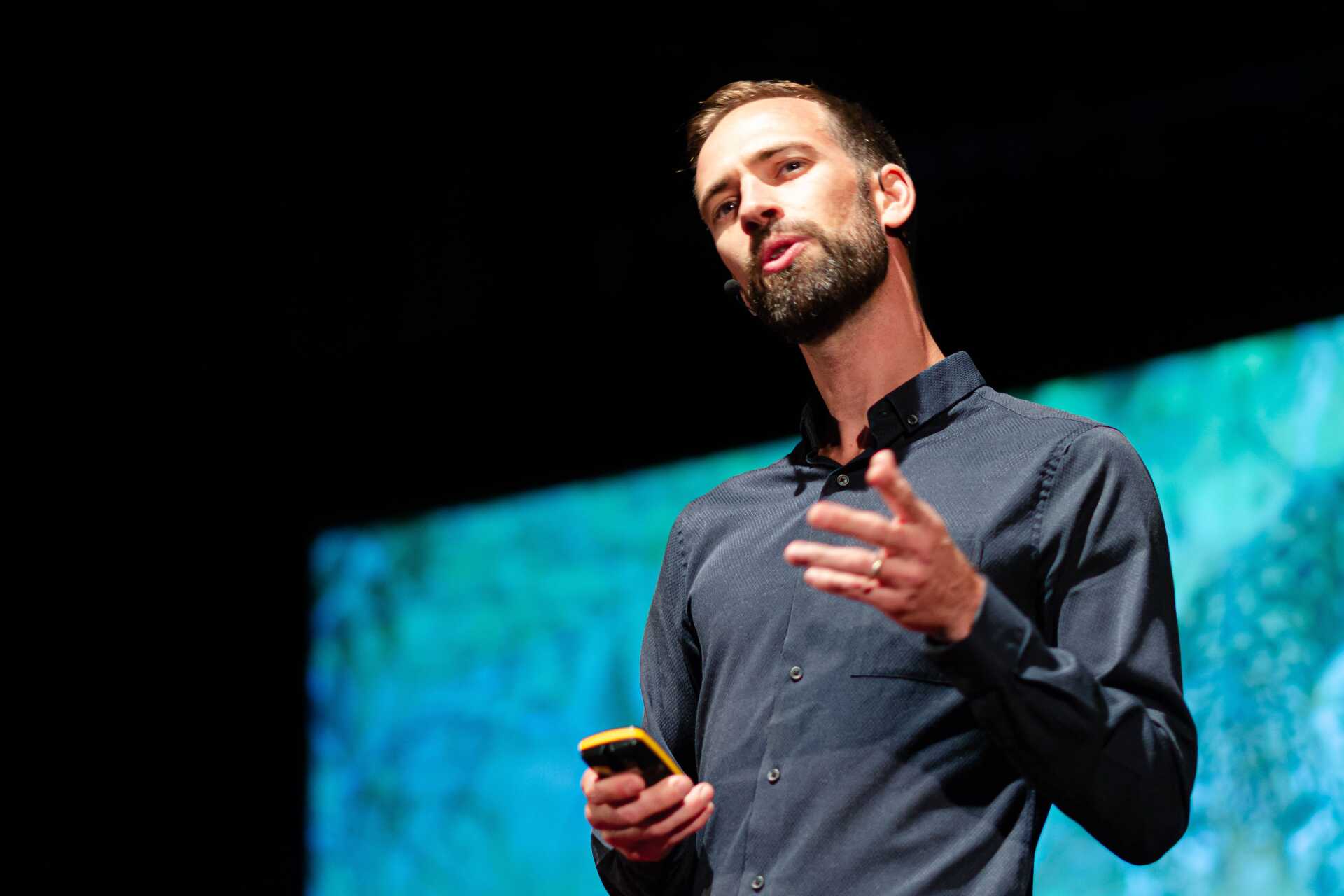
Geography and Environmental Studies at Kent was ranked 1st in the UK for research output in the Times Higher Education (REF 2021).
Many of our students gain high-quality work experience in exciting conservation placements all over the world.
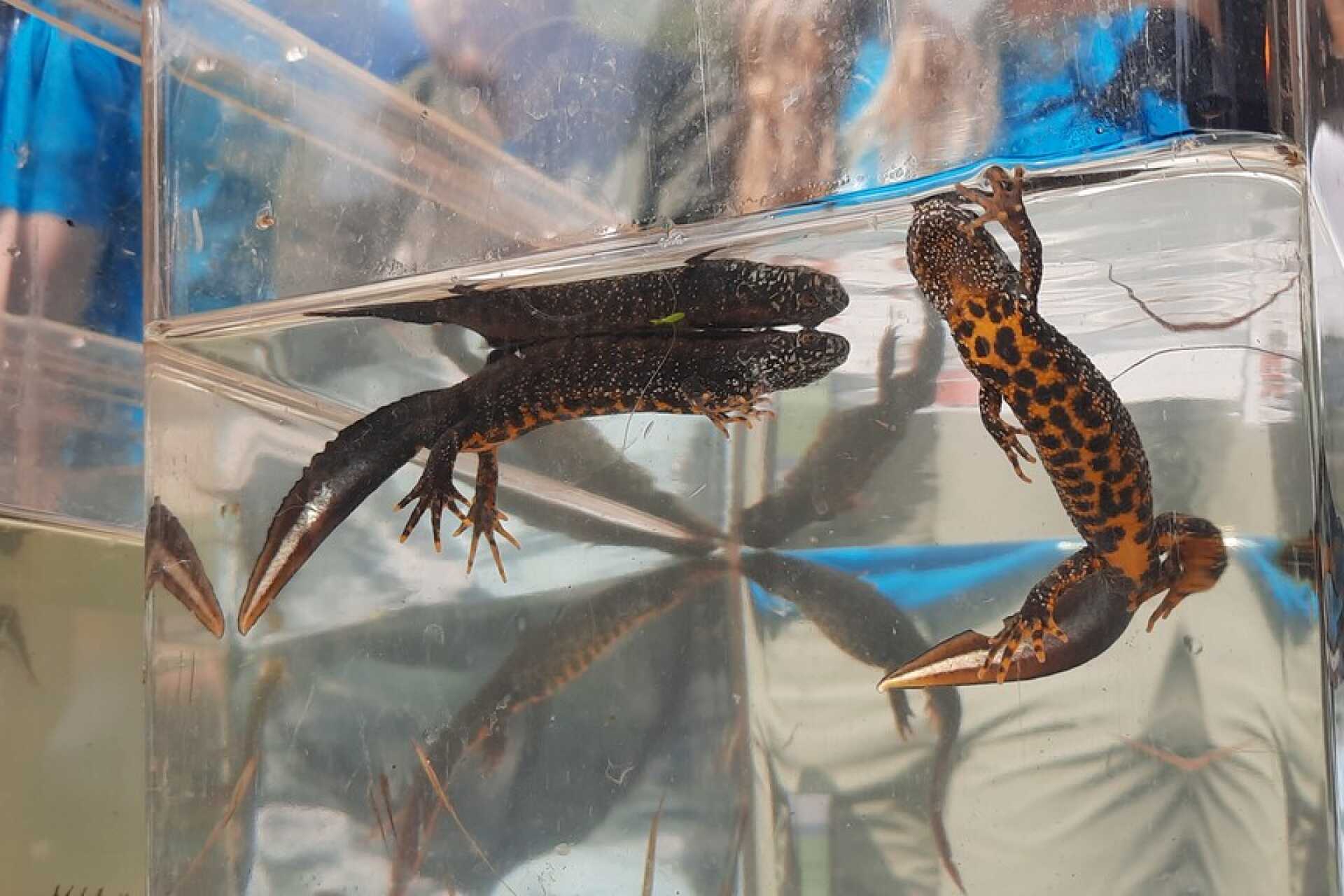
Use our very own on-campus field ecology site, modern genetics labs and an Ecology lab for your research.
The University will consider applications from students offering a wide range of qualifications. Click below to find out more. Please also see our general entry requirements.
BBB including one of Biology, Geography, Chemistry, Environmental Science, Psychology, Geology, Physics, Maths or any Joint Science at grade B or above.
Distinction, Distinction, Merit in Countryside Management, Animal Management or Applied Science. Other subjects will be considered on a case-by-case basis
30 points overall or 15 points at HL, including 5 at HL or 6 at SL in Biology, Geography, Environmental Science, Psychology, Geology, Chemistry, Physics or Maths.
Mathematics grade C / 4
Pass all components of the University of Kent International Foundation Programme with a 60% overall average including 60% in LZ045 Life Sciences (1 & 2), 60% in LZ036 Academic Skills (and 50% in LZ013 Maths and Statistics if you do not hold GCSE Maths at 4/C or equivalent).
The University will consider applicants holding T level qualifications in subjects closely aligned to the course.
The University welcomes applications from Access to Higher Education Diploma candidates for consideration. A typical offer may require you to obtain a proportion of Level 3 credits in relevant subjects at merit grade or above.
The following modules are offered to our current students. This listing is based on the current curriculum and may change year to year in response to new curriculum developments and innovation:
We are living in the era of the Anthropocene (the era of humankind), when humans have become the key driver of planetary changes. This module provides a comprehensive introduction to environmental sustainability in the context of the Anthropocene, understanding human impacts on nature. Using a strongly interdisciplinary approach based on human and environmental geography, we discuss key environmental challenges including climate change, pollution, and biodiversity loss, among others. We explore contemporary debates around sustainable development and critically analyse these in relation to real world sustainability problems along with an understanding of the relevant policy context. You are introduced to a series of case studies that illustrate human-environment relations as connected to social, economic and political processes at different scales. The module introduces systems thinking, initiating the understanding of interconnectedness.
The broad aim of this module is to provide students with practical field experience in biodiversity monitoring and assessment methods. Specific aims are to introduce students to a range of basic field techniques and develop their skills in the collection, analysis and presentation of field data. The module provides an essential practical element of the Wildlife Conservation programme.
The module is spread over the term, allowing different groups of organisms to be examined as they become available for survey, and the dates may vary slightly from year to year. Groups of students will each undertake survey or monitoring projects under the supervision of a member of staff. Each project will assess the biodiversity of an appropriate taxonomic group (eg. birds, amphibians, reptiles, plants, etc.) in either a terrestrial or freshwater habitat. Students will be expected carry out a range of surveys, analyse the data and write-up their results.
This module introduces students to the range of basic academic and research skills required across the range of the School's BA and BSc courses. Students will learn to independently use library resources to conduct scholarly research in their field of study and related fields, how to appropriately analyse that literature, and incorporate it into their own academic writing. Beyond writing, student will learn how to effectively communicate scholarly topics in the format of oral and poster presentations. Students will then be introduced to the basic aspects of collecting and analysing qualitative data as relevant in their own field of study and related disciplines. Finally, the module will focus on the skills needed to organise, analyse, and present quantitative data for the purpose of hypothesis testing in these disciplines.
This module will introduce a range of fundamental concepts that underpin our understanding of biodiversity and, therefore, the conservation of biodiversity and associated ecosystem services. The differences and similarities between the multiple definitions for the term 'biodiversity' will be considered, in addition to examining how scientists are trying to assess the magnitude of biodiversity on the planet. Spatial and temporal patterns of biodiversity will be investigated, including how past geophysical processes have shaped biodiversity as we see it distributed across biomes today. The importance of biodiversity (both use and non-values) will be discussed – including a case study of the global carbon cycle, explaining how that links to biodiversity and ecosystem service provision. The module will then explore the contemporary threats to biodiversity and provision of associated ecosystem services, in conjunction with a broad overview of the methods conservationists employ to protect and maintain biodiversity.
The aim of the module is to link theory and practice in wildlife conservation. A number of practical conservation problems will be used to introduce key theoretical concepts that underlie modern biodiversity management. Particular emphasis will be placed on the challenges of collecting useable data for understanding threats, establishing conservation priorities (at the species and habitat levels) and informing decision-making. Students will develop an understanding of the practical skills and scientific principles that underlie conservation management goals and plans at different geographical and temporal scales.
The module explores the geographic patterns of biological diversity around the world (biogeography), and the relationships between plants, animals and their environment (ecology). It begins with how the physiology and reproductive biology of plants has shaped the variety of habitats, ecosystems and biomes seen in the natural world today. Key concepts and theories concerning how these geographical patterns have been affected by complex historical and current factors will also be explored. The module continues with an introduction to ecological concepts that define how species are distributed within communities and across landscapes. It concludes with a discussion of how biogeographical and ecological principles inform global conservation strategies, and help us better understand how to manage threats to biodiversity from environmental change.
This module is an introduction to biological anthropology and human prehistory. It provides an exciting introduction to humans as the product of evolutionary processes. We will explore primates and primate behaviour, human growth and development, elementary genetics, the evolution of our species, origins of agriculture and cities, perceptions of race and diversity, and current research into human reproduction and sexuality. Students will develop skills in synthesising information from a range of sources and learn to critically evaluate various hypotheses about primate and human evolution, culture, and behaviour. This module is required for all BSc Anthropology students. The module is also suitable for students in other disciplines who want to understand human evolution, and the history, biology, and behaviour of our species. A background in science is not assumed or required, neither are there any preferred A-levels or other qualifications. The module is team-taught by the biological and social anthropology staff.
This module is an introduction to human and primate evolution, and human prehistory. It provides an exciting introduction to humans as the product of evolutionary processes. We will explore primates and primate behaviour, elementary genetics, prehistoric archaeology, and the evolution of our species (and that of our ancestors such as Australopithecines and Neanderthals). Students will develop skills in synthesising information from a range of sources and learn to critically evaluate various hypotheses about primate and human evolution. The module is also suitable for students in other disciplines who want to understand human evolution, and the history of our planet and our species. A background in science is not assumed or required, neither are there any preferred A-levels or other qualifications.
This module provides a comprehensive introduction to people, place and the environment. In the first half of the module we explore this relationship through the lens of contemporary environmentalism. We consider how environmental issues are framed and managed by different societal stakeholders (such as policy makers, scientists, the media, activists) and introduce a series of core concepts of relevance to contemporary environmental management, including sustainability, resilience and environmental economics. In the second half, we explore the broader social and spatial dynamics that govern how the relationship between people, place and the environment takes shape, including urbanisation and the rise of mega-cities, the changing role of regional blocs and nation states, and changing geographies of gender, class, and ethnicity.
This module explores and evaluates geographical patterns and processes occurring within urban and rural systems. The module includes introductory lectures and seminars on conceptualising the dynamics of urban and rural change and the underlying economic, social, cultural and environmental processes that drive their geographical expression. Understanding is set within a broader consideration of how social-spatial processes in urban and rural environments can be interpreted and assessed with respect to different values and priorities, and in relation to wider questions of environmental sustainability, social justice and economic prosperity. The introductory lectures and seminars for each section of the module (urban and rural) provide the context in which these systems are investigated empirically through field-based observation, interpretation and analysis.
You have the opportunity to select elective modules in this stage.

I’d recommend doing a placement, as it’s a chance to try out something new and to gain experience before graduating.Hannah Pepe, Wildlife Conservation with a Year in Professional Practice
This module is designed to introduce and re-affirm statistical concepts, and their correct use. This module is delivered through combined lecture/practicals using computer software. Introductory topics will include types of data, descriptive statistics such as measures of central tendency, frequency distributions, the normal distribution, variance (standard error, standard deviation), and how sample parameters and null hypotheses apply in real data. Inferential statistics include analysis of differences between two groups (e.g. t-tests and non-parametric equivalents), differences between multiple groups (ANOVA and non-parametric equivalents), variable relationships (correlation and regression), and variable associations (e.g. chi-squared test). The role of probability in data analysis will also be considered, as will its application to scientific questions. Throughout, emphasis will be placed on practical application of statistics, and when and how they are applied. Students will be able link the theory presented with the practical sessions and data collection components. As such, students will collect and analyse their own data. By the end of the module, students will have a knowledge of the underlying principles of statistics, be able to conduct statistical tests in statistical software, critically evaluate the results, and have a sound appreciation of the benefits and limitations of different statistical techniques. This module provides students with the statistical knowledge to conduct in-depth data analysis for their final year research project.
This module provides students with an introduction to the many and diverse qualitative methods and design issues that inform ethnographic research inquiry within the social sciences. Its purpose is to equip students with some of the skills and mindsets to approach independent qualitative research and thus become active participants in knowledge creation. The module explores what counts as ethnographic research, how it overlaps with and diverges from other qualitative approaches, and how its validity can be assessed from a social science perspective. Specific training in the design and use of a range of interpretive research techniques is provided, including: qualitative interviews; extensive questionnaires; focus groups, visual and other creative methods, and participant observation. We will consider the processing and analysis of qualitative data, as well as basic descriptive statistics to analyse quantitative data. We will also explore the integration of qualitative and quantitative data into ethnographic analysis and writing. Towards the end of the module, we will look in more depth at the principles of research design in order to help students begin to plan their final year research projects.
The aim of this module is to examine emerging and controversial topics in conservation biology and to help students develop conceptual and critical thinking. Each week a topic is introduced in the lecture and discussed in seminar later in the week. You will be given papers on Moodle to read and evaluate before the seminar. Indicative topics that will be critically evaluated during the course include: developing sustainable use strategies for over-exploited species, wildlife trade and illegal hunting, the roles of zoos and museums in conservation biology, the impact of emerging infectious diseases, large-scale ecological and evolutionary approaches for setting conservation priorities, and the importance of reintroduction for recovery of threatened species.
The module will examine the way in which biodiversity conservation activities are widely implemented in practice and on the ground, particularly by organisations for which conservation is not the primary focus. As such, relevant regulatory and voluntary principles that govern the conservation actions of businesses and governments will be explored, alongside some of the more influential multilateral conservation policies.
The pathways by which scientific evidence is integrated into policy and practice will be illustrated using some case studies. Consultation processes, as well as the role of government and non-government organisations in formulating and implementing policy and practice will be explored.
Ultimately, the goal of the module is to better equip students to practice conservation in a non-conservation organisational setting once they have completed their courses.
The aim of this module is to explore, assess and apply critical concepts and approaches to the sustainable planning of landscapes. Drawing on recent developments in the geography, conservation and environmental planning literatures, the module introduces students to key ideas intersecting with policy and practice agendas and initiatives for landscape, including natural capital, ecosystem services, environmental economics and participatory environmental management. Alongside critical reflection on the underlying assumptions that guide these developments, the module places students in real-world scenarios in which they must design and shape plans for rural and urban landscapes.
The overall aim of this module is to provide you with an outline of the principles of Geographic Information Systems (GIS) and to introduce a range of methods for collection and analysis of spatial data. Particular attention is paid to developing your analysis skills through the use of remote sensing techniques and Geographic Information Systems (GIS). GIS are increasingly being used in many disciplines, including geography, wildlife conservation, animal behaviour and environmental sciences to help solve a wide range of "real world" problems. As the current trend in these disciplines moves towards the acquisition, manipulation and analysis of large datasets with explicit geographic reference, employers often report shortages of relevant GIS skills to handle spatial data. Thus, this module will introduce the use of GIS as a means of solving spatial problems and the potential of GIS and remote sensing techniques for geography, environmental sciences and wildlife conservation, providing you with marketable skills relevant to research and commercial needs.
Topics will include:
• understanding the major concepts in GIS
• introduction to remote sensing
• data structures in GIS
• data sources and methods of data acquisition
• georeferencing, co-ordinate systems and projections
• working with raster and vector data
• mapping (how to create and transform maps)
• overview of ArcGIS Pro
• GIS operations
• manipulation, spatial data query and analysis of a wide range of geographic, environmental and socio-economic information.
These topics will be taught using a combination of lectures and practicals. The practical classes will provide hands-on experience using a GIS software. You will be able to use knowledge and skills acquired in this module in practical project work.
This interdisciplinary module introduces to a range of key concepts and discourses in the field of development geography with a specific focus on the global South. The module begins by conceptualising 'development' as well as introducing contemporary development theories to build the foundation. The module then applies this understanding in examining a selection of contemporary development issues and debates in the global South context including poverty, inequality, impacts of climate change, nature of disasters, gendered vulnerabilities, and the challenges of sustainable development. Here context and place matters, as well as the differences and links between places and peoples.
Students are introduced to a series of global South case studies that illustrate development processes as connected to social, economic and political processes at different scales. Although development approaches are equally applicable to urban and rural environments, the focus in this module is predominantly on the urban context and the contestations within them.
The module is divided into several sections, each of which introduces students to a set of issues, concepts, key vocabularies and approaches in relevance to Development Geography. The sections of the modules are complementary to each other and as a whole they will provide a strong understanding of the development context and processes in the global South.
Students are strongly encouraged to think of the module as a whole and to explore the connections between the different issues and theoretical approaches addressed in this module.
The biology of mammals, and our relationships with them—both direct and evolutionary—are often what sparks our interest in studying biology, ecology or conservation. Moreover, it is inescapable that humans are also mammals, and thus their biology is our biology. In this module, we explore the diversity of mammals with a particular emphasis on non-human primates, to better understand both this fascinating array of species, as well as ourselves. Taking an evolutionary and ecological perspective throughout, we explore mammalian anatomy and physiology, draw contrasts with other vertebrate groups, and explore the diversity of mammalian social systems. We also cover the process of natural selection, the nature of species, and how we classify these to make sense of biological diversity. This module engages students with primary literature, and with extensive opportunities for hands-on 'experiential' learning using our extensive skeletal collection in practical (lab) classes. It provides a fundamental comparative understanding of what it means to be a mammal, allowing students to place their other studies within this context, as well as establishing a foundation for further specialisation in mammalian (and human) biology.
Genetics forms the basis of the diversity of life on earth, and is fundamental to biodiversity, speciation, evolutionary ecology, and has become recognised to be vital to the successful restoration of endangered species. An understanding of the evolutionary processes that foster biodiversity and genetic diversity is essential for modern conservation biologists, across timescales ranging from a few generations to millions of years. Students will gain an understanding of the importance of genetic processes and evolutionary mechanisms within the context of conservation.
Human-wildlife conflicts and resource competition imply costs on human social, economic or cultural life and on the ecological, social or cultural life of wildlife concerned, often to the detriment of conservation objectives and socio-economic realities. This module aims to introduce students to the magnitude and multidisciplinary dimensions of human-wildlife conflicts (HWC) and resource competition, and current approaches and challenges in mitigating and preventing HWC. We will explore how theoretical frameworks for approaching HWC are most often confined within disciplinary boundaries and how more holistic approaches can better equip conservationists and other professionals in dealing with the issue. Using a variety of teaching and learning methods, students will learn about issues involved in determining and analysing HWC, and planning, implementing and evaluating conflict mitigation or prevention schemes.
This module explores the ways in which ecological science can be applied to solving some of the crucial problems facing the world today, including those affecting wildlife conservation. It covers key ecological principles at the population, community and ecosystem levels, and investigates how these principles can help guide management decisions, policy and environmental practice. A major theme is how natural resources can be managed and exploited sustainably, drawing on examples from agriculture, urbanisation, and forestry in temperate and tropical regions. The module also explores the role of rewilding and restoration in achieving conservation goals. Central to the module is the question of how wildlife conservation can be better incorporated into the wider needs of environmental management.
The driving causes of biodiversity loss are not just ecological, but also political, economic and cultural, and conservationists need to acquire the knowledge and skills to address broader social contexts. This module aims to introduce students to cutting-edge debates about the place of local people in biodiversity conservation, and provide them with an overview of the essential role that the social sciences play in the analysis of environmental issues. Objectives of the module are to provide students with a broad conceptual understanding of the social context of conservation; knowledge of the history of conservation approaches towards local communities; familiarity with key issues in the implementation of community conservation; and a critical approach to analysis of the current conservation debates.
You have the opportunity to select elective modules in this stage.
Conservationists must continually analyse relevant and topical issues in a broad, real-world context. This includes understanding contemporary research, critically evaluating its ecological, evolutionary and interdisciplinary basis, and using this information to inform effective solutions to conservation problems that are embedded in social, political and economic reality. In this module, students will use and apply knowledge/skills gained throughout their degree programme during in-depth discussions of how current research programmes, as presented at the weekly DICE seminars, fit into the wider conservation context. In addition, they will write up these evaluations as a series of 'News and Views' style commentary articles, as published in the top international journal Nature.
The module is considered as an important element of Wildlife Conservation undergraduate training. The opportunity to engage in personal research is seen as an essential element of academic training in all disciplines. The particular skills necessary to undertake research, whether practical fieldwork or laboratory work or a desk-based study, can only be taught through the medium of practically orientated investigative tasks. The principle objective in the research project is to assist students in gaining insight into the organisation, analysis and communication of research. The approved investigation may be novel i.e. one that has not previously been carried out, or it may repeat previously executed work for comparative or control purposes
The diversity and complexity of primate sociality is reflected in the diversity and complexity of their communication strategies. This module complements the module ANTB5800 (SE580) 'Primate Behaviour & Ecology' by examining the ways in which primates communicate with one another through olfactory, tactile, visual, and acoustic signals. We will address fundamental questions in animal communication including: Is it appropriate to characterize such communication in terms of information transfer? How does communication evolve? What maintains signal honesty, and under what conditions can deceptive communication can evolve? The module will cover the physical and biological bases of signal production and perception. We will explore the extent to which studies of primate communication can provide a window into their minds. Finally, we will delve into the question of the relevance of primate communication for understanding the evolution of human language.
If behaviour has been shaped by natural selection, then those behaviours must have some biological basis. This module explores the extent to which hormonal mechanisms provide such a biological explanation of behaviour in humans and our primate cousins. Students will learn the basics of the endocrine system, and consider both how hormones affect behaviour and how behaviour may affect hormones. This module will examine the role that hormones play in the differentiation of behaviours between females and males, as well as the evidence that sexual, parental, aggressive, and affiliative behaviours are influenced by hormones. Students will thus complete this module with a greater appreciation of the hormonal underpinnings of the complex sociality that characterizes humans and other primates.
The aim of this module is to explore, assess and apply critical concepts and approaches to the sustainable planning of landscapes. Drawing on recent developments in the geography, conservation and environmental planning literatures, the module introduces students to key ideas intersecting with policy and practice agendas and initiatives for landscape, including natural capital, ecosystem services, environmental economics and participatory environmental management. Alongside critical reflection on the underlying assumptions that guide these developments, the module places students in real-world scenarios in which they must design and shape plans for rural and urban landscapes.
The overall aim of this module is to provide you with an outline of the principles of Geographic Information Systems (GIS) and to introduce a range of methods for collection and analysis of spatial data. Particular attention is paid to developing your analysis skills through the use of remote sensing techniques and Geographic Information Systems (GIS). GIS are increasingly being used in many disciplines, including geography, wildlife conservation, animal behaviour and environmental sciences to help solve a wide range of "real world" problems. As the current trend in these disciplines moves towards the acquisition, manipulation and analysis of large datasets with explicit geographic reference, employers often report shortages of relevant GIS skills to handle spatial data. Thus, this module will introduce the use of GIS as a means of solving spatial problems and the potential of GIS and remote sensing techniques for geography, environmental sciences and wildlife conservation, providing you with marketable skills relevant to research and commercial needs.
Topics will include:
• understanding the major concepts in GIS
• introduction to remote sensing
• data structures in GIS
• data sources and methods of data acquisition
• georeferencing, co-ordinate systems and projections
• working with raster and vector data
• mapping (how to create and transform maps)
• overview of ArcGIS Pro
• GIS operations
• manipulation, spatial data query and analysis of a wide range of geographic, environmental and socio-economic information.
These topics will be taught using a combination of lectures and practicals. The practical classes will provide hands-on experience using a GIS software. You will be able to use knowledge and skills acquired in this module in practical project work.
This module looks at the politics of the global climate crisis at the international, national and local level. Whether it is global climate change governance, national or local climate adaptation policy making and plans, or individual attitudes and behaviour, we need to understand what motivates actors and how a combination of motivations and structure translate into climate action in various contexts and societies. This module provides you with the tools to explain the politics of the global climate crisis at the international, national and local level. The module draws on a variety of debates from political science, international relations, human geography and urban studies. In addition to an overview of key policy documents driving the discourse, we will explore interdisciplinary theorisations across the social and natural sciences that help rethink the arguments in renewed ways. This includes the critical role of cities and an understanding of how key concepts such as the Anthropocene and adaptation and mitigation shape the global climate emergency agenda.
This interdisciplinary module introduces to a range of key concepts and discourses in the field of development geography with a specific focus on the global South. The module begins by conceptualising 'development' as well as introducing contemporary development theories to build the foundation. The module then applies this understanding in examining a selection of contemporary development issues and debates in the global South context including poverty, inequality, impacts of climate change, nature of disasters, gendered vulnerabilities, and the challenges of sustainable development. Here context and place matters, as well as the differences and links between places and peoples.
Students are introduced to a series of global South case studies that illustrate development processes as connected to social, economic and political processes at different scales. Although development approaches are equally applicable to urban and rural environments, the focus in this module is predominantly on the urban context and the contestations within them.
The module is divided into several sections, each of which introduces students to a set of issues, concepts, key vocabularies and approaches in relevance to Development Geography. The sections of the modules are complementary to each other and as a whole they will provide a strong understanding of the development context and processes in the global South.
Students are strongly encouraged to think of the module as a whole and to explore the connections between the different issues and theoretical approaches addressed in this module.
Since the 1990s a more critical strand of thinking about the interactions between political spaces (nations, regions), power, and international relations has emerged in political geography, that of critical geopolitics. It is often associated with the writings of Gerard Ó Tuathail. John Agnew, Simon Dalby and Klaus Dodds among others. This module examines the emergence of critical geopolitics and the core concepts of contested ideas, the social construction of both knowledges and
political/spatial entities such as modern nation states and their specific political geographies. It also considers the wider applications of geopolitical concepts in a range of settings and circumstances.
Tourism is one of the world's largest and most dynamic industries contributing to GDP in many counties and is a key source of employment, income generation and government revenue. This module examines how tourism places have been created and are maintained. It discusses the rise and spatial diffusion of the modern tourism industry (or group of industries) and the geographies of this development. The recent history of international tourism is introduced with a particular focus on the role of scale from the largest tourism transnational corporations operating at a global level through
to small-scale tourism such as family-run guest houses or backpacker hostels. The module links to key geographical issues such as globalisation, mobility, production and consumption and changing physical landscapes. It also discusses the major role played by tourism in the less developed world where it is often seen an engine for economic development.
The biology of mammals, and our relationships with them—both direct and evolutionary—are often what sparks our interest in studying biology, ecology or conservation. Moreover, it is inescapable that humans are also mammals, and thus their biology is our biology. In this module, we explore the diversity of mammals with a particular emphasis on non-human primates, to better understand both this fascinating array of species, as well as ourselves. Taking an evolutionary and ecological perspective throughout, we explore mammalian anatomy and physiology, draw contrasts with other vertebrate groups, and explore the diversity of mammalian social systems. We also cover the process of natural selection, the nature of species, and how we classify these to make sense of biological diversity. This module engages students with primary literature, and with extensive opportunities for hands-on 'experiential' learning using our extensive skeletal collection in practical (lab) classes. It provides a fundamental comparative understanding of what it means to be a mammal, allowing students to place their other studies within this context, as well as establishing a foundation for further specialisation in mammalian (and human) biology.
This module will inform students how climate has influenced the diversity of life on Earth, from past to present, and its likely future impacts. We will begin with a summary of the physical science basis of contemporary climate change and the role that anthropogenic factors have played since the commencement of the industrial era. We will then explore the biological and ecological impacts of climate change on individual organisms, populations and communities, with particular emphasis given to understanding how species are responding. The module will then explore how conservation biologists are using particular interventions to ameliorate the most harmful and destabilising effects of climate change. From a more general perspective, the social, economic and political ways in which climate change can be mitigated will be assessed.
Genetics forms the basis of the diversity of life on earth, and is fundamental to biodiversity, speciation, evolutionary ecology, and has become recognised to be vital to the successful restoration of endangered species. An understanding of the evolutionary processes that foster biodiversity and genetic diversity is essential for modern conservation biologists, across timescales ranging from a few generations to millions of years. Students will gain an understanding of the importance of genetic processes and evolutionary mechanisms within the context of conservation.
This module examines today's cutting-edge techniques that are available to wildlife biologists attempting to save some of the world's most critically endangered species from extinction. The module exposes students to the challenges of recovering endangered species, including a range of perspectives from priority-setting and resource allocation, to small population biology and the role of zoo collections. The module examines a number of cross-cutting themes relevant to recovering endangered species, including the management of invasive species, leadership of species recovery programmes, island endemic species, species of extreme rarity, reintroduction biology and managing infectious disease in conservation programmes. Throughout the module iconic case histories are examined and used as a way to consider the reasons why some programmes are successful whilst others fail. The consideration of topics and case studies leads to a reappraisal of particular approaches to species conservation such as institutional priority-setting, field infrastructures and leadership styles which tomorrow’s wildlife biologists will need in order to restore endangered species in the future.
This module includes an optional two day field course to the Durrell Conservation Academy in Jersey. The 2-day workshops will allow students to (i) understand the role that zoos and captive management can play in biodiversity conservation, (ii) become acquainted with the conservation work of DCA and WT, (iii) interact with conservation/zoo staff during taught sessions and seminars, (iv) gain a first-hand impression of the hands-on captive management and other field techniques necessary to conserve endangered species, and (v) learn about associated field projects worldwide and in the UK currently undertaken by DCA and WT. Students will be reimbursed for up to £60 for the cost of their travel to Jersey but will need to meet the remaining travel costs. The cost of accommodation and full board at the Durrell Conservation Academy will be covered by the School of Anthropology and Conservation.
Students who do not participate in the field trip will still meet the module learning outcomes through the teaching events and assessments taking place throughout the module duration.
Human-wildlife conflicts and resource competition imply costs on human social, economic or cultural life and on the ecological, social or cultural life of wildlife concerned, often to the detriment of conservation objectives and socio-economic realities. This module aims to introduce students to the magnitude and multidisciplinary dimensions of human-wildlife conflicts (HWC) and resource competition, and current approaches and challenges in mitigating and preventing HWC. We will explore how theoretical frameworks for approaching HWC are most often confined within disciplinary boundaries and how more holistic approaches can better equip conservationists and other professionals in dealing with the issue. Using a variety of teaching and learning methods, students will learn about issues involved in determining and analysing HWC, and planning, implementing and evaluating conflict mitigation or prevention schemes.
This residential module is designed to provide students with first-hand experience of ecological processes, biodiversity and conservation issues associated with humid tropical environments. Tropical rainforests are the most biologically diverse habitats on Earth and the loss of rainforest is of tremendous conservation concern, both due to loss of diversity as well as its consequences for global warming.
Topics to be covered in the curriculum:
• Rainforest structure and defining characteristics of pristine and disturbed habitats.
• Practical training in ecological techniques and survey methods for a range of terrestrial taxonomic groups.
• Interventions such as protected area management and local community issues
Anthropogenic factors affecting rainforests including, fragmentation, global warming and agriculture.
The module will take place in a field studies centre at a rainforest location where there is an adequate infrastructure to ensure an acceptable standard of logistical support and health and safety conditions. Students will spend time working in forest systems, and there will be an emphasis on practical training in ecological survey and assessment methods. Teaching on conservation will be integrated with short visits to surrounding sites to gain direct appreciation of the issues, problems and solutions surrounding rainforests and their wildlife.
Participation in the module will be dependent on maintaining a clean disciplinary record during registration on the degree course prior to the module. These requirements may be waived in individual cases at the discretion of the module and course convenors where we judge that there is a strong case for allowing the student onto the module.
The module will examine the way in which biodiversity conservation activities are widely implemented in practice and on the ground, particularly by organisations for which conservation is not the primary focus. As such, relevant regulatory and voluntary principles that govern the conservation actions of businesses and governments will be explored, alongside some of the more influential multilateral conservation policies.
The pathways by which scientific evidence is integrated into policy and practice will be illustrated using some case studies. Consultation processes, as well as the role of government and non-government organisations in formulating and implementing policy and practice will be explored.
Ultimately, the goal of the module is to better equip students to practice conservation in a non-conservation organisational setting once they have completed their courses.
The driving causes of biodiversity loss are not just ecological, but also political, economic and cultural, and conservationists need to acquire the knowledge and skills to address broader social contexts. This module aims to introduce students to cutting-edge debates about the place of local people in biodiversity conservation, and provide them with an overview of the essential role that the social sciences play in the analysis of environmental issues. Objectives of the module are to provide students with a broad conceptual understanding of the social context of conservation; knowledge of the history of conservation approaches towards local communities; familiarity with key issues in the implementation of community conservation; and a critical approach to analysis of the current conservation debates.
You have the opportunity to select elective modules in this stage.
Our teaching is research-led as all our staff are active in their fields. In addition to lectures and seminars, we run laboratory-based practicals and field trips. You also have an opportunity to conduct a field-based research thesis in your final year. This gives you practical experience of developing a research proposal and research questions, finding appropriate methods, conducting research, analysing and interpreting results, writing up a full research project and giving an oral presentation, all with the support of a dedicated project supervisor.
We offer you the opportunity to conduct your research project either in the UK or abroad – for example, many students have taken part in the annual expedition to the Peruvian Amazon, one of the most biodiverse regions on Earth.
Most modules are assessed by 50% coursework and 50% unseen exam. Some modules are assessed only by coursework, which takes a variety of forms, including essays, short answer tests, oral presentations, laboratory reports, individual and team projects, field reports, commentaries, management plans and statistical analyses.
For a student studying full time, each academic year of the programme will comprise 1200 learning hours which include both direct contact hours and private study hours. The precise breakdown of hours will be subject dependent and will vary according to modules. Please refer to the individual module details under Course Structure.
Methods of assessment will vary according to subject specialism and individual modules. Please refer to the individual module details under Course Structure.
For programme aims and learning outcomes please see the programme specification.
Most people in the UK do not speak another language and I feel that knowing another language is essential in improving employability.

The conservation and environmental sector is an expanding area for employment opportunities. Employers include ecological surveying, local, regional and national government departments, conservation organisations and the private sector, as well as international conservation and environmental organisations.
Our recent graduates have found work as:
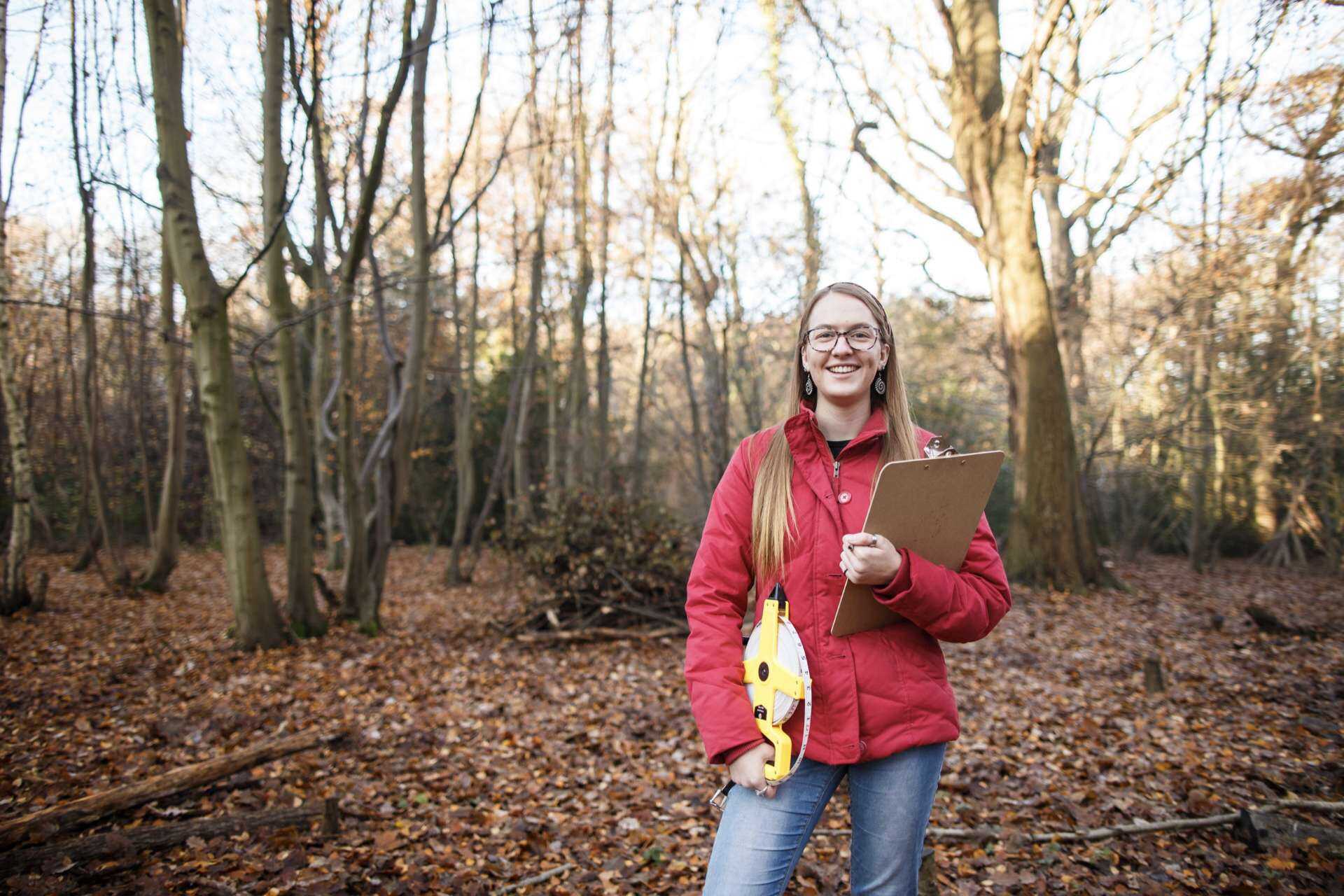
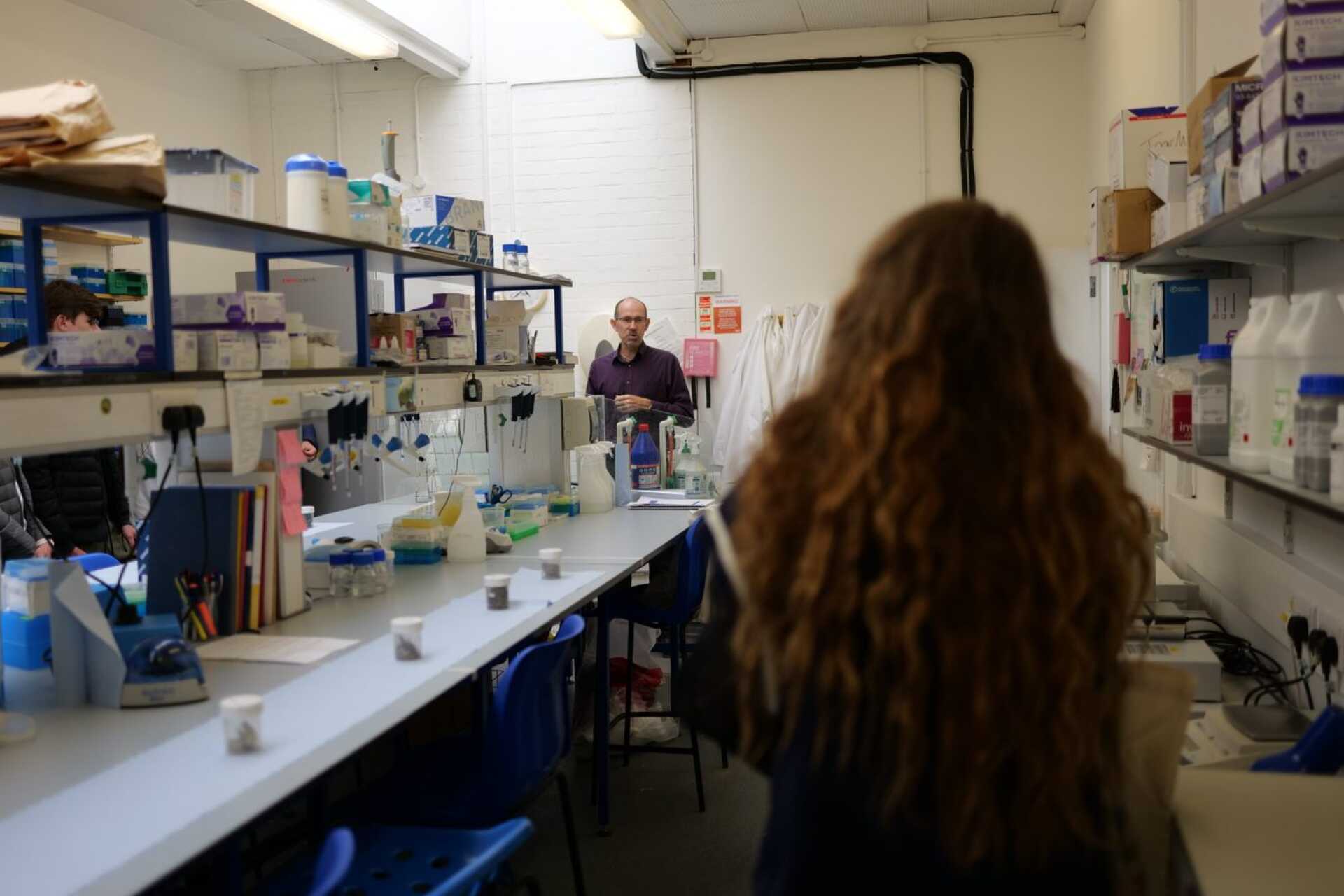
The 2023/24 annual tuition fees for this course are:
For details of when and how to pay fees and charges, please see our Student Finance Guide.
For students continuing on this programme, fees will increase year on year by no more than RPI + 3% in each academic year of study except where regulated.*
The University will assess your fee status as part of the application process. If you are uncertain about your fee status you may wish to seek advice from UKCISA before applying.
One day trips that are compulsory to a module are financially funded by the School. Optional or longer trips may require support funding from attendees.
Find out more about accommodation and living costs, plus general additional costs that you may pay when studying at Kent.
Kent offers generous financial support schemes to assist eligible undergraduate students during their studies. See our funding page for more details.
At Kent we recognise, encourage and reward excellence. We have created the Kent Scholarship for Academic Excellence.
The scholarship will be awarded to any applicant who achieves a minimum of A*AA over three A levels, or the equivalent qualifications (including BTEC and IB) as specified on our scholarships pages.

We have a range of subject-specific awards and scholarships for academic, sporting and musical achievement.
We welcome applications from students all around the world with a wide range of international qualifications.

Student life

Kent ranked top 50 in the The Complete University Guide 2023.
Kent Sport
Kent has risen 11 places in THE’s REF 2021 ranking, confirming us as a leading research university.

Accommodation